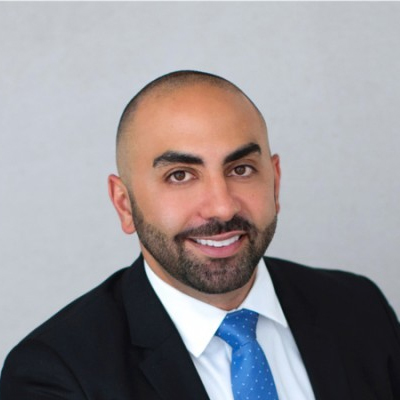Our Orlando Immigration Office has handled many EB-1C cases successfully. Since Orlando Immigration Attorney Nayef Mubarak speaks Arabic and Spanish, many of his EB-1C Clients are from the Middle East and South America. Like these other clients, EB-1C Visa Attorney Nayef Mubarak in Orlando can assist you or your company with transferring an employee or yourself to the United States with investments and/or expansion of your businesses in the United States. We can also assist you in Portuguese.
The EB-1C visa category is one of the three types of employment-based, first-preference petitions for permanent residence reserved for aliens who are among the most capable and accomplished in their fields. The EB-1C is quite like the L-1 in the sense of necessary requirements. However, with an approval of the I-140 petition for an EB-1C visa, the beneficiary would be eligible for an immigrant visa. This would allow the beneficiary to obtain permanent residency (a “green card”), making it an extremely attractive option for foreign nationals. The EB-1C attracts many foreign nationals to invest and expand in the U.S. under the L-1 visa, and to eventually obtain residency in the United States.

EB-1C Visa Overview
To qualify, the Beneficiary must have been employed outside the United States for at least 1 year within the last 3 years preceding the application [1] and must be seeking to enter the U.S to continue service to the qualifying U.S. entity. Moreover, the Beneficiary’s employment must have been outside the United States in a managerial or executive capacity and with the same employer, affiliate (definition below), or a subsidiary of the U.S. prospective employer.
Please note, an L-1 visa is not a prerequisite for an EB-1C. However, most L-1 recipients meet all the necessary requirements for the EB-1C making it a natural next step for many.
Managerial and Executive Capacity
Managerial and Executive capacity are defined under 8 C.F.R. 214.2(l)(ii)(B) and 214.2(l)(ii)(C), respectively. In addition to definitions provided by the regulations, the Service should consider:
- where the Beneficiary will be employed;
- the entity’s organizational hierarchy;
- the beneficiary’s position therein; and
- the company’s ability to relieve the beneficiary from having to primarily perform the daily operational tasks of the business. See Tsiva, Inc. et al v. Attorney General, Department of Justice et al, 3:12-cv-00631 (M.D. Fla Nov. 24, 2014).
It is critical that an attorney review their client’s job descriptions and duties to be sure that the beneficiary’s duties meet the minimum requirements under the definitions. It is important to note that any subordinate managers or executives of the Beneficiary should also meet the definitions provided in the regulations. The duties and job description of subordinate employees are often reviewed by USCIS. USCIS will challenge whether the Beneficiary is an executive if his or her subordinates do not meet the definition of a manager. It is not required to have a manager reporting to an executive. However, USCIS often argues that if the subordinate employees do not meet the definition of manager then the Beneficiary is not an executive. Orlando Immigration Attorney Mubarak understands the importance of anticipating issues. It is important that your attorney reviews the evidence to ensure the definitions have been met to classify the Beneficiary as managerial or executive.
The Affiliate Relationship
The affiliate definition can be difficult to establish, as it is not as black and white as the other qualifying organizations such as: subsidiary, branch, or parent office. The regulations provide three different definitions under affiliate. The one often questioned is the second definition of affiliate which is defined as “one of two legal entities owned and controlled by the same group of individuals, each individual owning and controlling approximately the same share or proportion of each entity…” [2]. Additional guidance is provided from case law in Matter of Tessel, 17 IN Dec. 631 (BIA 1981). The Board of Immigration Appeals stated the determination on whether an affiliate relationship exists is determined on control of the two entities rather than actual shareholders. In another case, Sun Moon Star Advanced Power, Inc. vs. Chappell, (BIA 1981), the U.S entity was owned by five siblings, their two parents, and two spouses of the siblings. The foreign entity was only owned by the five siblings and their two parents. In the Sun Moon case, the relationship was deemed to be an affiliate. Therefore, ownership by the same group and configuration of people is not required for affiliate designation. When seeking to establish a relationship under the affiliate definition it is important to have a common shareholder(s) and/or establish one entity has control of the other.
The ambiguities in the definition can create real problems for those seeking an L-1 visa. However, it also creates opportunity. First, an affiliate relationship allows for greater flexibility for small start-up companies. A shareholder of a foreign entity can also be a Beneficiary of the L-1 visa. A shareholder with majority interest in a foreign entity could establish a U.S. company on their own, and still qualify for the L-1 visa. The U.S. affiliate need not be in the same industry as the foreign office. This also allows for flexibility and options for potential L-1 clients. The Beneficiary’s skills, however, should be transferable. Another creative way to qualify a foreign entity for an L-1 visa is to use shareholder rights of proxy. For example, if two minority shareholders of a foreign entity could obtain majority control by combining their voting rights, the two parties can now open an office in the U.S. and meet the definition of qualifying organization for purposes of the L-1 Visa. Immigration Attorney Mubarak meets with all of his clients to strategize and determine their best course of action.
Important Affiliate Relationship Update
On December 29, 2017, the USCIS issued a Policy Memorandum on Qualifying Relationships and Proxy Votes, PM-602-0155. This memo clarified that when proxy votes are a determining factor in establishing control, the petitioner must now show the proxy votes are irrevocable from the time of filing through the time USCIS adjudicates the petition, along with evidence that the relationship will continue during the approval period requested. This is a brand-new requirement for the affiliate relationship. This memo should be reviewed carefully prior to filing an L-1 petition based on an affiliate relationship. Mubarak Law has assisted clients with ensuring their affiliate relationship for either their L-1 visa or their EB-1C petition has been established.
Recent changes under the Trump Administration for the EB-1C
Employment-based adjustment of status applicants are now required to attend a personal interview before their case will be completed. USCIS will interview applicants whose petitions were filed on or after March 6, 2017, as well as any family members applying with the principal. If the petition was filed before March 6, 2017, an interview can be scheduled if there is an issue in the case that may affect eligibility to adjust status, such as an arrest or conviction. This was USCIS’s previous interview policy for employment-based adjustment applicants
The interview requirement is part of the agency’s compliance with President Trump’s executive order on protection of the United States from terrorist activities, signed March 6, 2017. These Interviews are not new, but for employment-based adjustment applicants, it has been longstanding policy to waive most interviews.
Neither the L-1 nor the EB-1C Visa were ever easy to obtain. However, these visas open the door for many clients who often believed no options were available. Finally, it is critical that the client is: informed of all the risks; provided with a realistic expectation; and properly prepared for all questioning, interviews and inspections associated with their respective visa. Please contact our office today for any questions relating to the L-1 visa (Form I-129) or EB-1C (Form I-140) process.
[1] If the Beneficiary’s employment abroad was more than 3 years prior to the application, but the beneficiary was admitted to the US on an L-1 visa, the Beneficiary can still be eligible for the Eb-1C.
[2] 8 C.F.R. 214.2(l)(1(ii)(L)(2).


